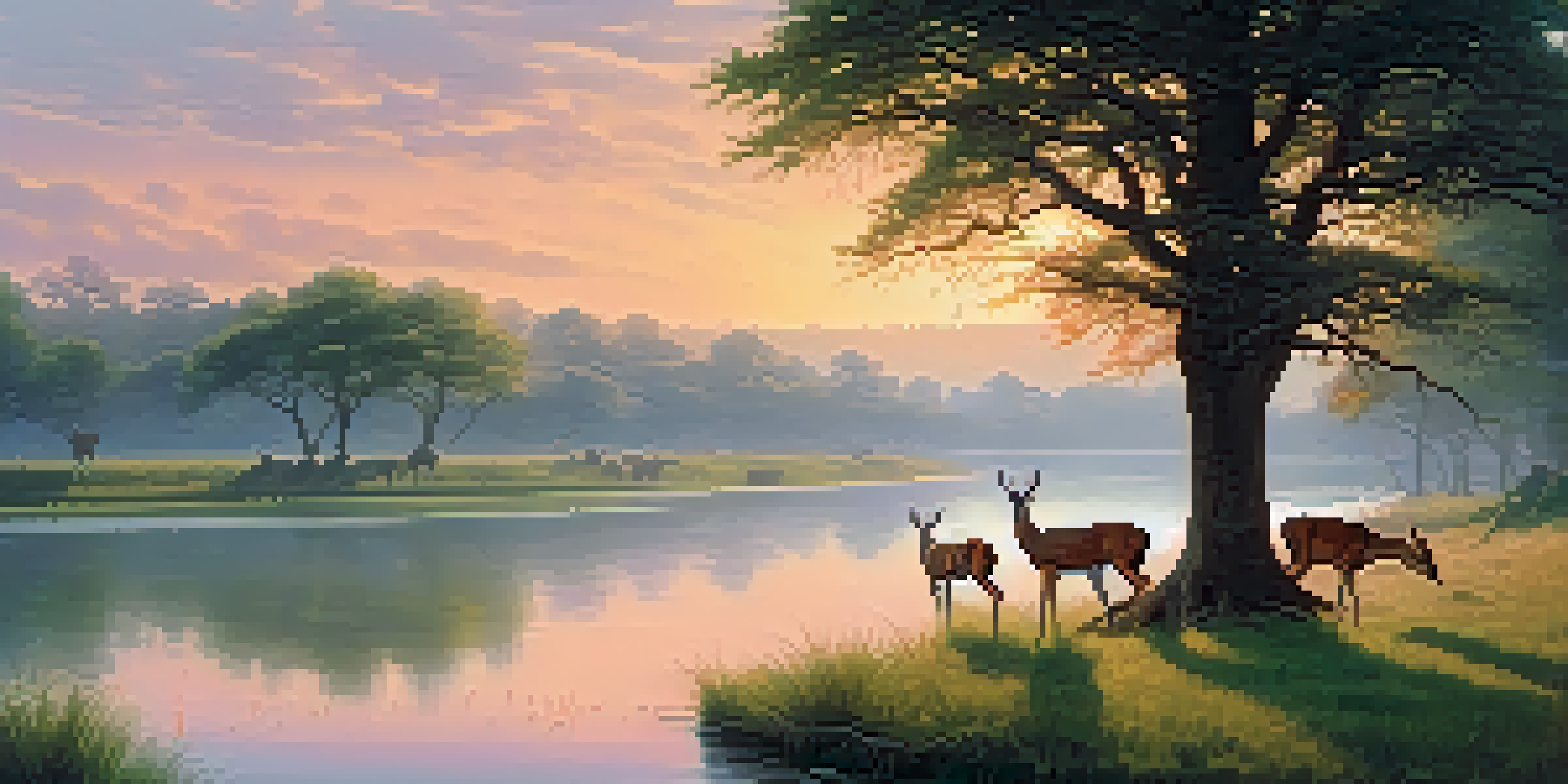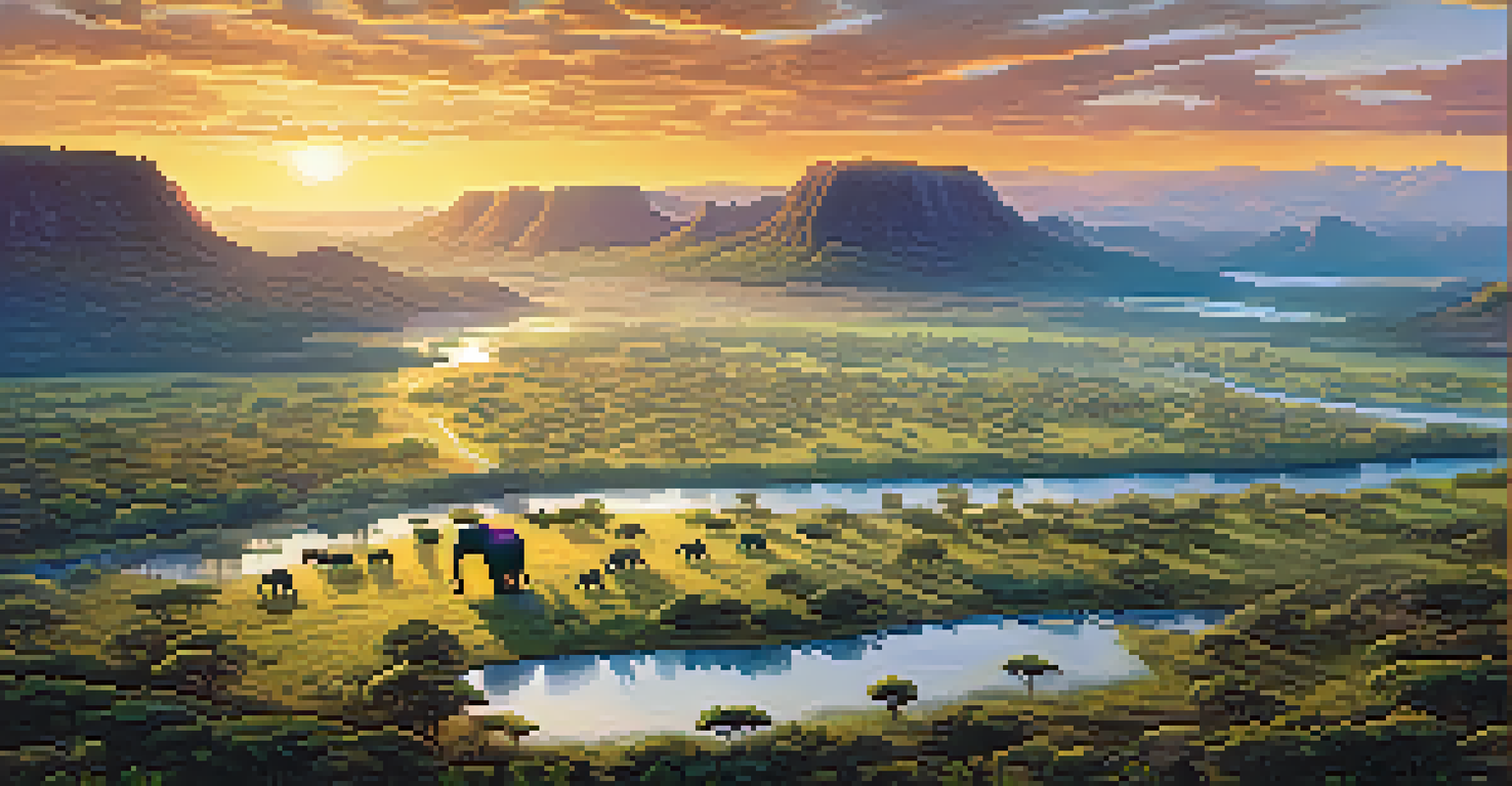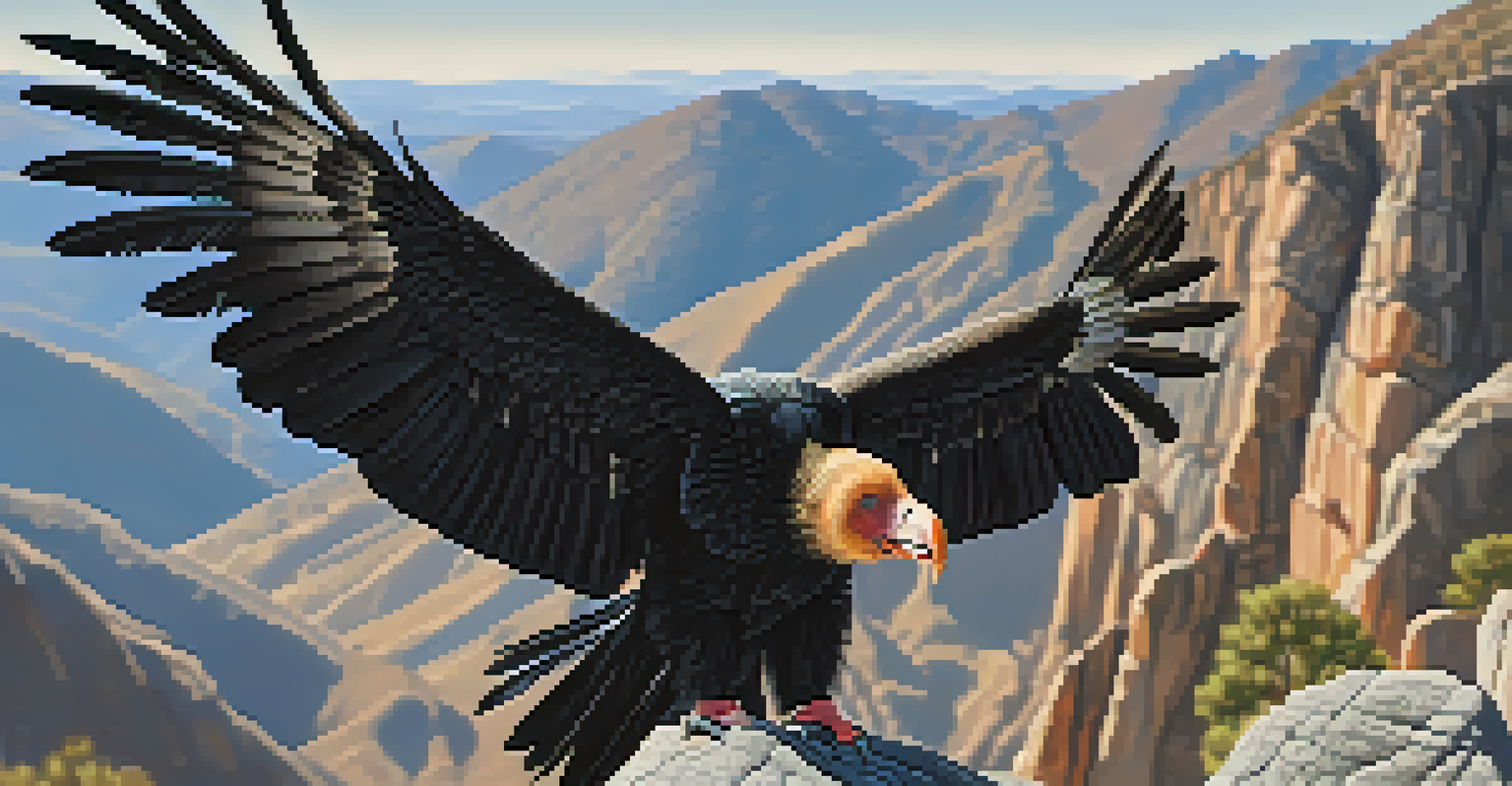The Importance of Wildlife Reserves for Biodiversity

What Are Wildlife Reserves and Their Purpose?
Wildlife reserves are protected areas designated for the conservation of wildlife and their habitats. These areas can vary in size and type, from large national parks to small sanctuaries, but their primary goal is the protection of species and ecosystems. By providing a safe haven, wildlife reserves help ensure that various species can thrive without human interference.
The greatness of a nation and its moral progress can be judged by the way its animals are treated.
The purpose of these reserves extends beyond merely housing animals; they also serve as critical research sites. Scientists can study ecosystems in their natural state, learning how species interact and adapt over time. This knowledge is crucial for developing effective conservation strategies that can be applied both within and outside reserve boundaries.
Ultimately, wildlife reserves contribute to the overarching goal of biodiversity conservation. By safeguarding habitats, they help maintain the genetic diversity necessary for ecosystems to function effectively, which in turn supports life on Earth, including human life.
Biodiversity: Why It Matters
Biodiversity refers to the variety of life on Earth, encompassing different species, ecosystems, and genetic variations. This rich tapestry of life is essential for ecosystem resilience, meaning that diverse ecosystems can better withstand environmental changes and human impacts. For example, a forest with a wide range of tree species is less susceptible to pests and disease than a monoculture forest.

Moreover, biodiversity contributes to human well-being in numerous ways. From providing food and medicine to supporting ecosystem services like pollination and water purification, the value of biodiversity extends far beyond the natural world. When we protect biodiversity, we are also safeguarding resources that are crucial for our survival.
Wildlife Reserves Protect Biodiversity
Wildlife reserves serve as safe havens for endangered species and ecosystems, ensuring their survival without human interference.
In the face of climate change and habitat loss, maintaining biodiversity has never been more important. It acts as a buffer against environmental challenges, ensuring that ecosystems can adapt and continue to provide essential services to humans and wildlife alike.
The Role of Wildlife Reserves in Conservation
Wildlife reserves play a pivotal role in conservation efforts by providing a controlled environment where endangered species can recover. For instance, many reserves have been successful in breeding programs that boost populations of critically endangered species, such as the black rhinoceros or the California condor. These programs not only help increase numbers but also raise awareness about the importance of conservation.
In nature's economy, the currency is not money, it is life.
Additionally, reserves serve as ecological corridors, facilitating movement and migration of species between different habitats. This connectivity is vital for maintaining genetic diversity and enabling species to adapt to changing environmental conditions. Without these corridors, isolated populations may struggle to survive as they become vulnerable to extinction.
By protecting large areas of land, wildlife reserves also help mitigate human-wildlife conflict. With designated areas for wildlife, the pressure on surrounding communities to encroach on natural habitats diminishes, allowing both people and wildlife to coexist more harmoniously.
Economic Benefits of Wildlife Reserves
While wildlife reserves are primarily established for conservation, they also offer significant economic benefits. Ecotourism, for instance, has become a major source of income for many countries, drawing visitors eager to experience wildlife in their natural habitats. This influx of tourists can boost local economies, providing jobs and supporting small businesses.
Moreover, reserves can enhance the value of surrounding lands. Properties adjacent to wildlife reserves often see an increase in land value due to their proximity to nature and the associated recreational opportunities. This can encourage sustainable development practices that benefit both the environment and local communities.
Economic Value of Wildlife Reserves
In addition to conservation, wildlife reserves boost local economies through ecotourism and increased land value.
In essence, investing in wildlife reserves is not just an environmental imperative; it's also an economic strategy. By protecting biodiversity, we are nurturing the very resources that sustain human livelihoods and contribute to a flourishing economy.
Challenges Facing Wildlife Reserves
Despite their importance, wildlife reserves face numerous challenges that threaten their effectiveness. One significant issue is habitat fragmentation, where human development breaks up larger habitats into smaller, isolated patches. This can hinder species movement and reduce genetic diversity, making populations more vulnerable to disease and extinction.
Additionally, illegal poaching and wildlife trafficking remain critical threats. Even in protected areas, poachers often exploit vulnerabilities to hunt endangered species for profit. This undermines conservation efforts and can lead to the collapse of local ecosystems when key species are removed.
Climate change further complicates the situation, as shifts in temperature and weather patterns can alter habitats and disrupt the delicate balance of ecosystems. To combat these challenges, wildlife reserves must adapt their management strategies and collaborate with local communities to ensure their long-term survival.
Community Involvement in Wildlife Conservation
Engaging local communities is essential for the success of wildlife reserves and conservation initiatives. When communities are involved in conservation efforts, they are more likely to value and protect their natural resources. For instance, programs that provide economic incentives for conservation, such as wildlife tourism, can create a sense of ownership and responsibility among residents.
Education plays a significant role in fostering this involvement. By raising awareness about the importance of biodiversity and the benefits of wildlife reserves, communities can become advocates for conservation. Workshops, school programs, and local events can help instill a sense of pride in their natural heritage.
Community Involvement is Crucial
Engaging local communities in conservation efforts fosters a sense of ownership and responsibility for natural resources.
Ultimately, when local communities thrive alongside wildlife, conservation becomes a shared goal. Collaboration between conservationists and residents can lead to innovative solutions that benefit both people and nature, ensuring the future of wildlife reserves.
The Future of Wildlife Reserves and Biodiversity
Looking ahead, the future of wildlife reserves and biodiversity hinges on our collective action. As global citizens, we must advocate for policies that prioritize conservation and support the establishment of new reserves. By expanding protected areas, we can create more opportunities for species to thrive and adapt to changing conditions.
Technological advancements also offer exciting possibilities for wildlife conservation. From satellite tracking to drone surveillance, technology can enhance monitoring efforts and help identify threats in real time. This data-driven approach allows for more effective and timely interventions to protect vulnerable species.

In conclusion, the importance of wildlife reserves for maintaining biodiversity cannot be overstated. By recognizing their value and actively supporting conservation efforts, we can help ensure that future generations inherit a diverse and vibrant planet teeming with life.